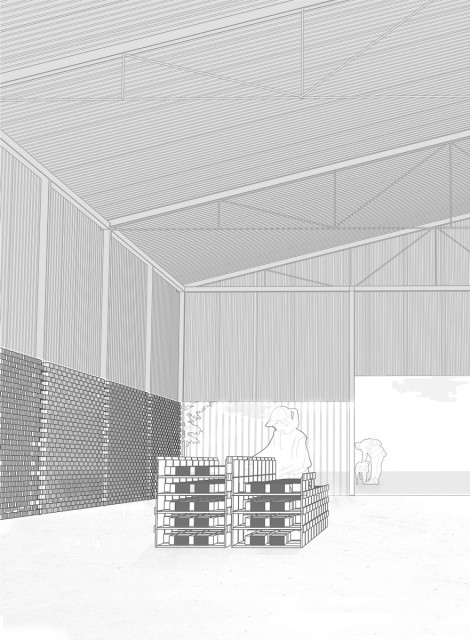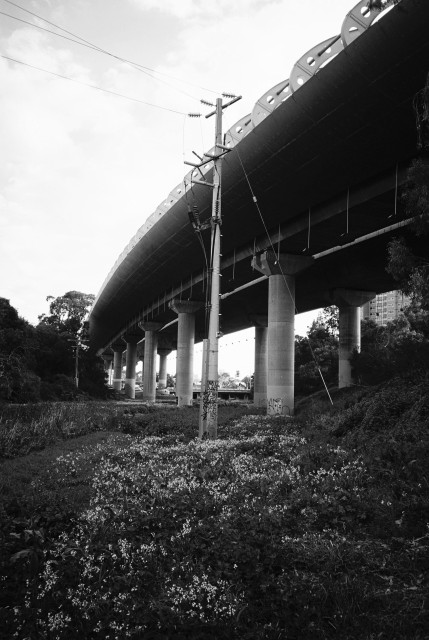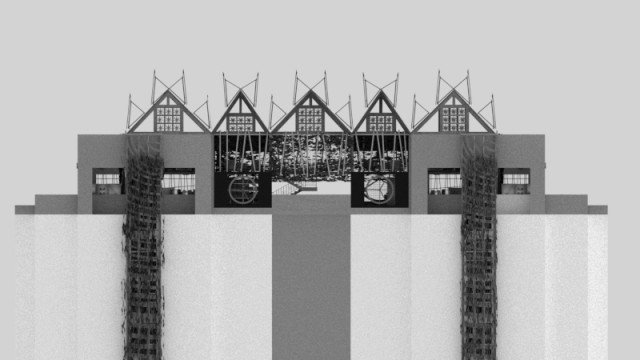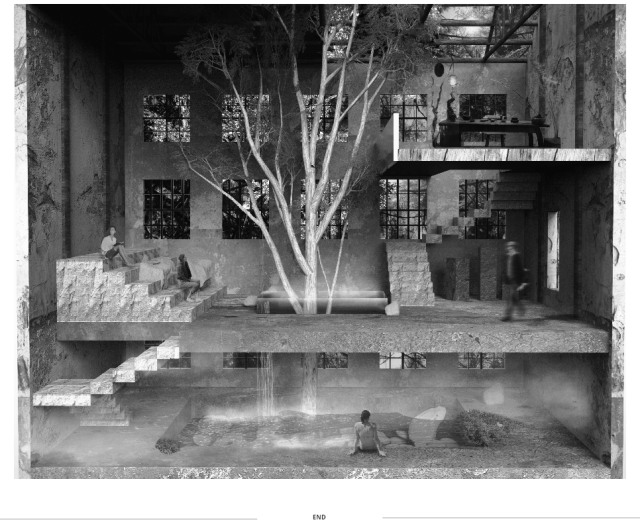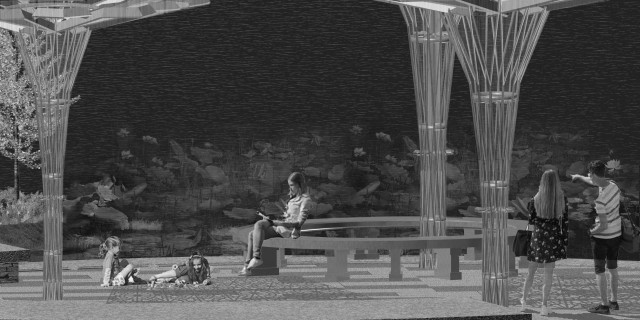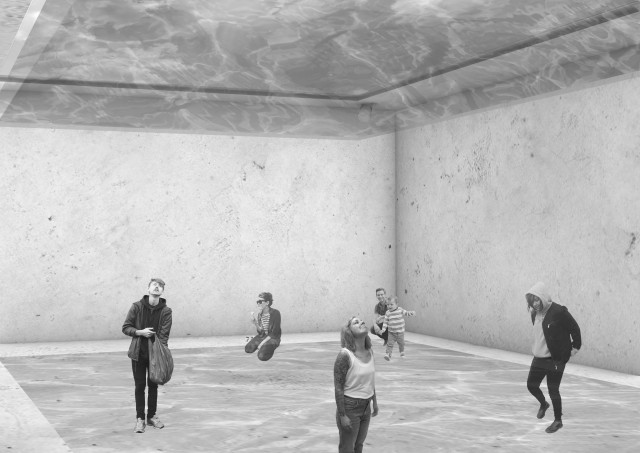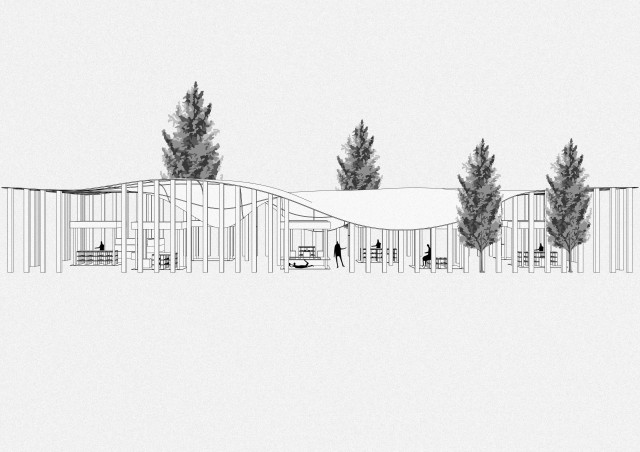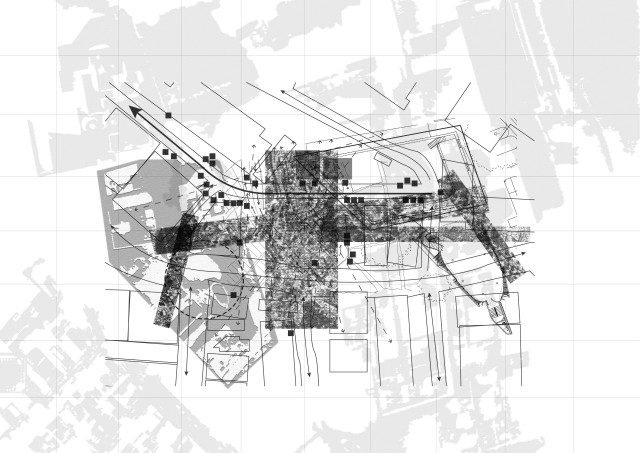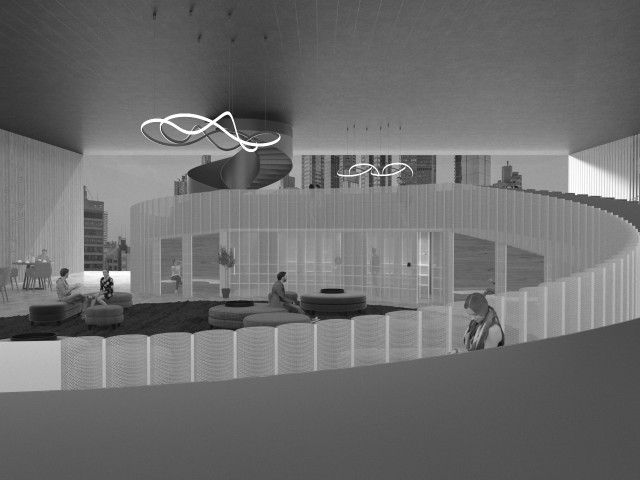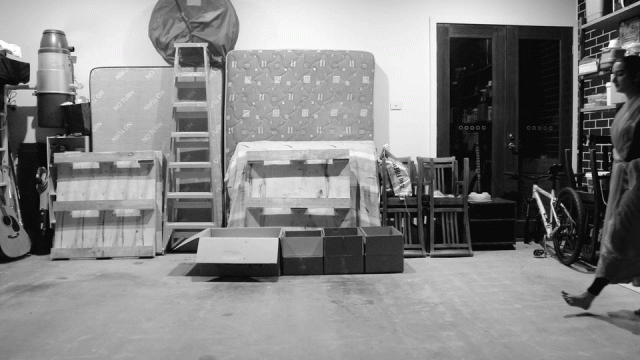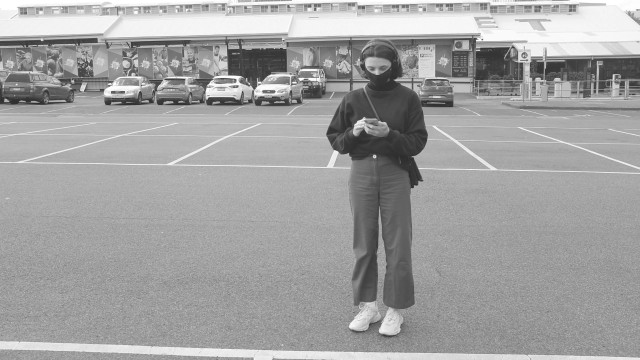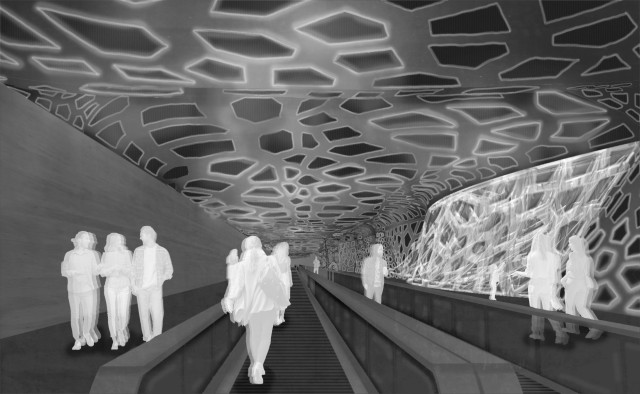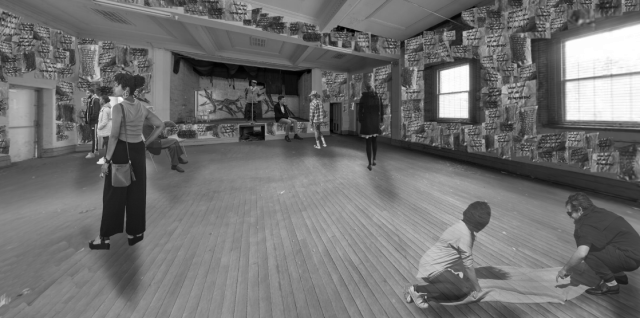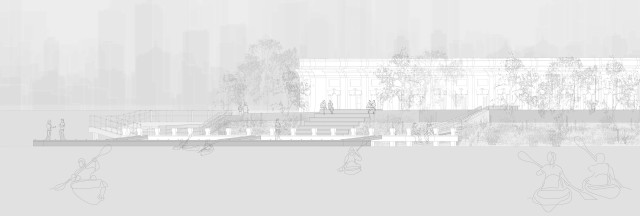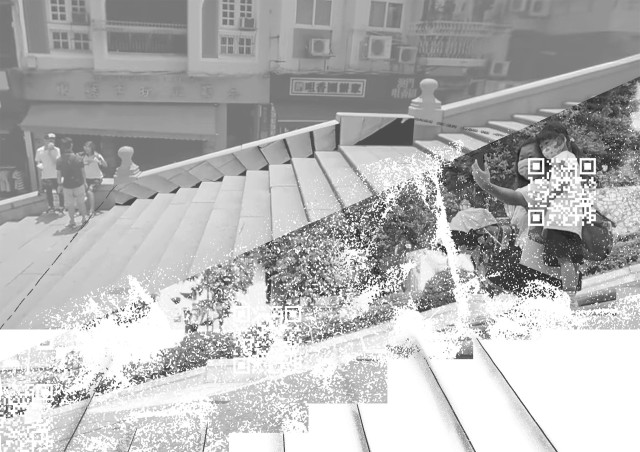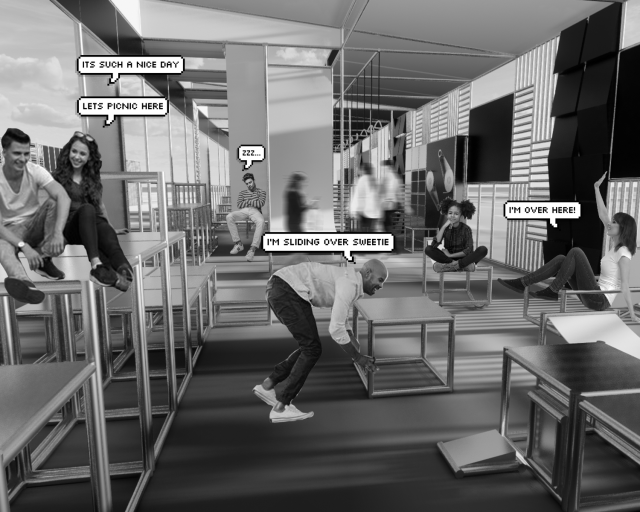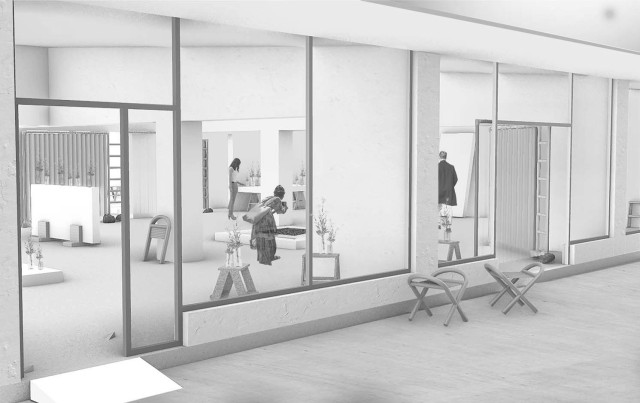Jennifer Weichen Zhou, House of Reformation [×]
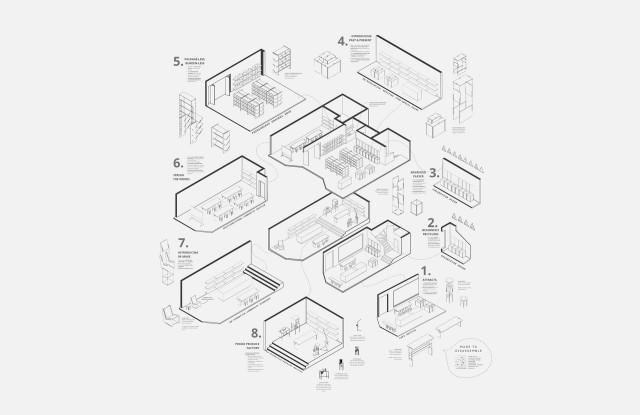
How does the practice of interior design and built environment the community inhabits could make an impact in providing solution in facilitating sustainability.
Sustainability is one of major issues facing our community. House of reformation investigates achieving sustainability in a built environment from within our community, forming a closed recycling circle.[1] A Space where people drop by and leave their recycling waste; purchase packaging free grocery, attend workshop sessions, upcycling things like take-a-way containers into their new jewellery, showing up at events to learn how to make compost bin, or... just coffee.
The design is situated in the Chapel street shopping district taking the form of a multi-program community hub that aims to interact and assist individuals into voluntary sustainable lifestyle choices. Spaces composing the House of reformation aims to target at three stages forming the closed recycling cycle; collection, re-formation, and re-evaluation. The stages are then taken to adapt behaviour patterns and forming recycling corner, recycling workshops, and retail area. A sustainably minded café and zero waste grocery store assists in making sustainable lifestyle choices more accessible.
An increasing number of sustainability-driven products are surfacing in our sight, but instead of making changes in our products with more resource input, why can’t we make changes in the way we act and re-use resources we already own? House of reformation is driven by curiosity as to whether interior design the community inhabits could make an impact in the way we act, providing solution in facilitating sustainability.
House of reformation seeks to change the ways we relate and connect between interiors and sustainability, with the formula of collection, re-formation, and re-evaluation. This closure to recycling circle will be able to apply to any spaces in and as the community requires, where the interior acts as a connection containing individuals and linking them with acts of sustainability.
[1] The process by which a product or material can be used and then turned into a new product or converted back to raw material indefinitely without losing its properties during the recycling process.










